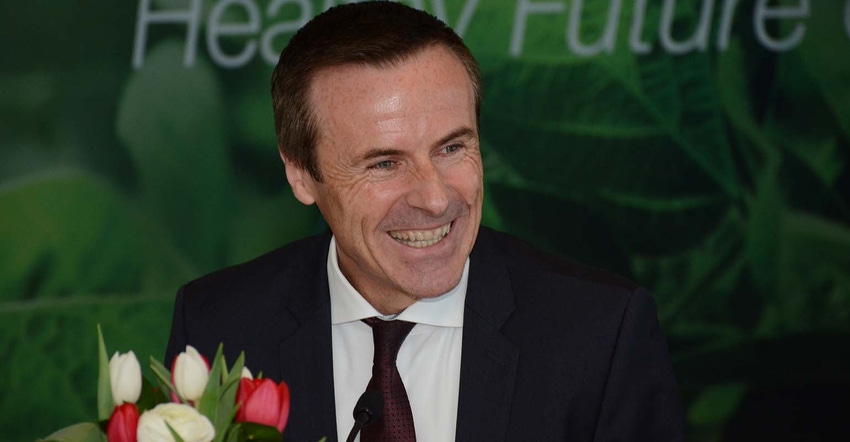
Bayer officials issued a release early today announcing that the company plans on closing on the Monsanto acquisition June 7. The news comes as the company received all required approvals for regulatory authorities over the weekend.
This winds down a mega-acquisition process that began two years ago when Bayer announced its intent to purchase Monsanto, a deal that eventually cost around $63 billion. The Justice Department okayed the deal last week with condition that Bayer divest itself of key assets, including $9 billion worth of ag businesses to BASF. Bayer becomes the sole shareholder of Monsanto on June 7. The two companies will continue to operate as separate entities for about two months as final divestment deals are completed.
At that point the highly-charged Monsanto name will be no more, leaving protesters to scramble for a new strategy to showcase anti-science views.
Did Bayer drop the Monsanto corporate brand because of negative consumer perceptions?
“Just changing a brand name doesn’t change anything, like reputation, overnight,” said Bayer Crop Science CEO Liam Condon, in a press conference with reporters today. “We simply had a strong belief that the Bayer brand had a strong positive recognition, based on audits we’ve done worldwide. This is something we couldn’t say about the Monsanto corporate brand.
“Once we change the company name we will talk about what the new company will stand for, because just changing a name doesn’t do much,” he added. “We’ve got to explain not only to farmers, but ultimately to consumers, why this new company is important for farming, agriculture, food and how it impacts consumers and the environment.”
Condon sees the acquisition as an opportunity to discuss the disconnect between farmers and consumers.
“We’re going to be engaging in a dialogue trying to explain why farmers need more innovation, and why it’s ultimately good for consumers. Changing the name is just one step. There needs to be more dialogue and engagement to bring across the what the new company stands for.”
No changes at the farm gate
Condon said he expected little or no change for farmers who do business with Bayer and the former Monsanto brands.
“What’s important to us is insuring customer continuity,” said Condon. “During the initial two-month period where we are standalone companies, nothing changes. After we’re allowed to integrate, initially I would also not anticipate any immediate short term changes because we’re focusing on continuity. We don’t want any big surprises.
“Over time what we’re hoping for is we will be able to upgrade and augment customer experience,” he said. “This whole deal really only works if it’s good for farmers and good for farmer profitability; to improve yields but also have better control of their inputs and cost position.”
Groups such as the National Farmers Union and the Organization for Competitive Markets protested the deal, voicing concerns over market abuse and limited competition. Condon says the Department of Justice “went out of its way to make sure all competitive issues were addressed. We also firmly believe there will be tremendously strong competition in this space, not only from existing payers, but also new players coming in with advances in technology and virtual companies offering transparency in prices based on data they are collecting. So there’s no reason not to believe competition will remain vigorous.”
In a statement we published earlier today, Bayer says the acquisition is a "strategic milestone in strengthening our portfolio of leading businesses in health and nutrition. We will double the size of our agriculture business and create a leading innovation engine in agriculture, positioning us to better serve our customers and unlock the long-term growth potential in the sector."
Similar focus on future
Condon said both Bayer and Monsanto have a similar strategic focus on feeding a growing global population in a sustainable way.
“We believed that by combining our resources we could generate more innovation faster and address some of the bigger issues facing farmers,” Condon added.
Company leaders have spent the last two years preparing for the acquisition. Over the next year Bayer will relocate several employees from its Raleigh, N.C. headquarters to the company’s new North American headquarters in St. Louis.
“We believe success will depend on developing a strong joint corporate culture, one that unites all employees,” says Condon. “We have much more in common we can build on. We share fundamental values. Both companies value innovation and customers.”
Success also depends on the company’s ability to build trust, he added. “That’s why we’re committed to listening to our critics, look for common ground and talk more with the public.
“We’re going to do the best we can to build bridges wherever we can.”
About the Author(s)
You May Also Like






